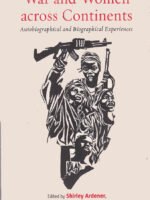Holding Their Breath uncovers just how close Britain, the United States, and Canada came to crossing the red line that restrained chemical weapon use during World War II. Unlike in World War I, belligerents did not release poison gas regularly during the Second World War. Yet, the looming threat of chemical warfare significantly affected the actions and attitudes of these three nations as they prepared their populations for war, mediated their diplomatic and military alliances, and attempted to defend their national identities and sovereignty.
The story of chemical weapons and World War II begins in the interwar period as politicians and citizens alike advocated to ban, to resist, and eventually to prepare for gas use in the next war. M. Girard Dorsey reveals, through extensive research in multinational archives and historical literature, that although poison gas was rarely released on the battlefield in World War II, experts as well as lay people dedicated significant time and energy to the weapon’s potential use; they did not view chemical warfare as obsolete or taboo.
Poison gas was an influential weapon in World War II, even if not deployed in a traditional way, and arms control, for various reasons, worked. Thus, what did not happen is just as important as what did. Holding Their Breath provides insight into these potentialities by untangling World War II diplomacy and chemical weapons use in a new way.









Be the first to review “Holding Their Breath”